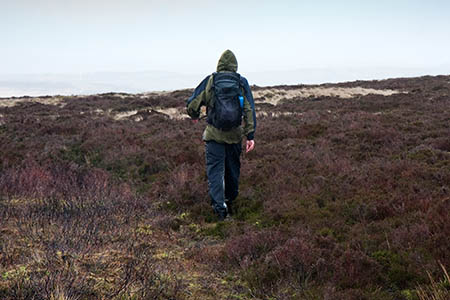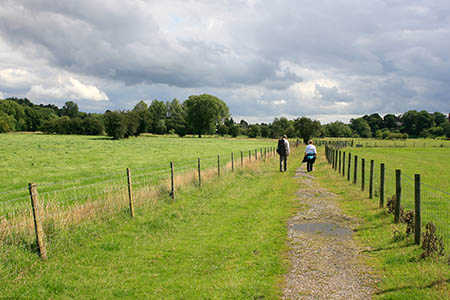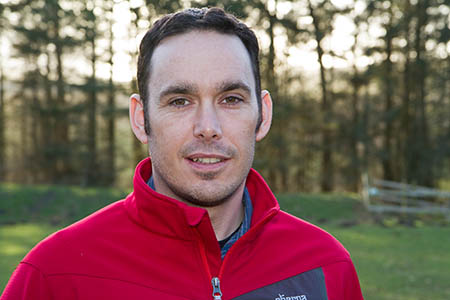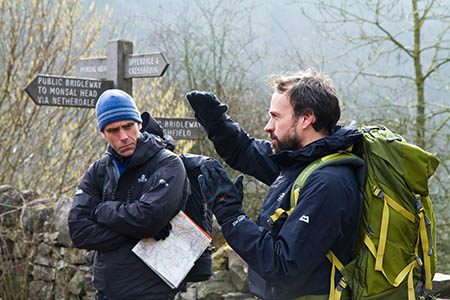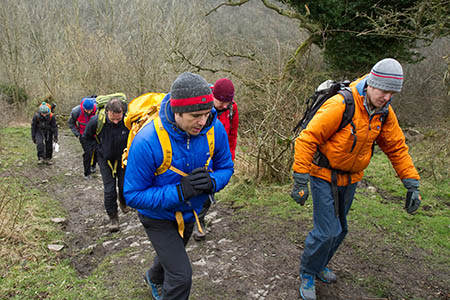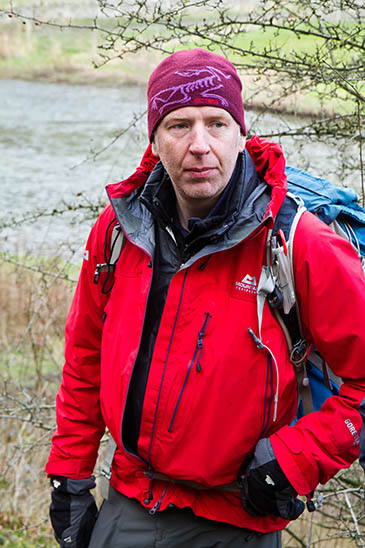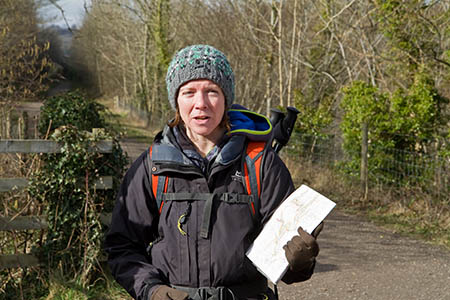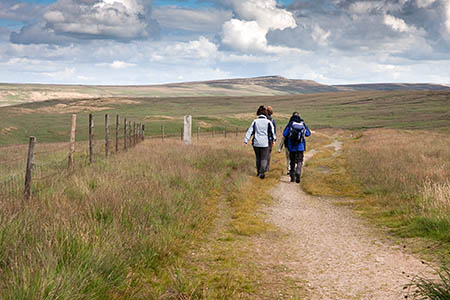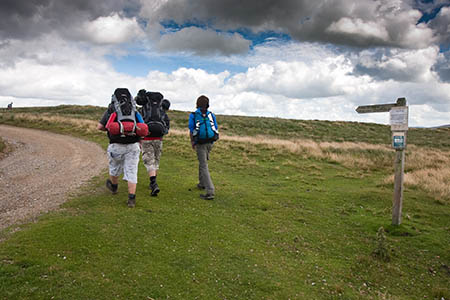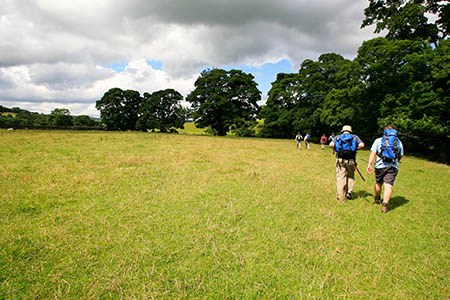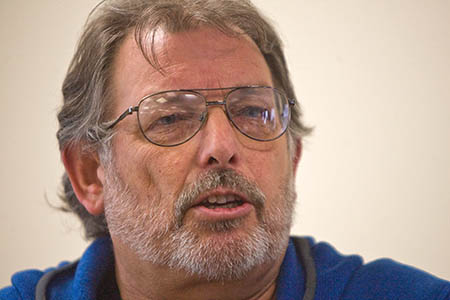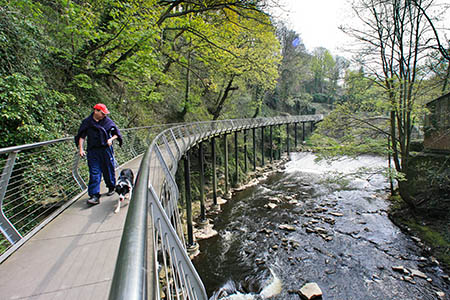Big changes are afoot in the world of mountain training.
As the organisation that oversees mountaineering qualifications in the UK enters its 50th year, it has announced plans to offer for the first time non-leadership courses to the public to improve their skills in the hills and mountains of Britain.
Mountain rescue teams across the country report increased callout rates as more people head for the hills, but many are ill prepared and will now reach for their mobile phone and call for help rather than getting themselves out of trouble.
Now, Mountain Training, the governing body that used to be called the Mountain Leader Training Board, is planning two new qualifications for anyone who wants to make their upland trips safer and more rewarding.
Backed by funding from Sport England, experts will offer Hill Skills and Mountain Skills courses from April this year, with anyone who takes part in the two-day courses receiving an official Mountain Training certificate.
At the same time, the organisation is introducing a Lowland Leader Award for people who lead groups in the 75 per cent of English countryside that doesn’t come under the remit of the well established Mountain Leader scheme and the Walking Group Leader Award.
And the WGL Award will be renamed in spring, becoming the Hill and Moorland Leader, to better reflect the type of terrain its holders are qualified to lead in.
The changes are the result of a two-year review of walking awards, the best known of which is the Mountain Leader. Since the MLTB was established in 1964, more than 140,000 people have registered as candidates for its various awards, which now include qualifications for rock-climbing, indoor wall climbing and the various walking awards.
Last year 2,054 candidates qualified for a Mountain Training award.
But unlike its leadership awards, the two new skills courses will not be assessed. Each will be run over two days and will include theory and skills sessions as well as practical teaching on the hills.
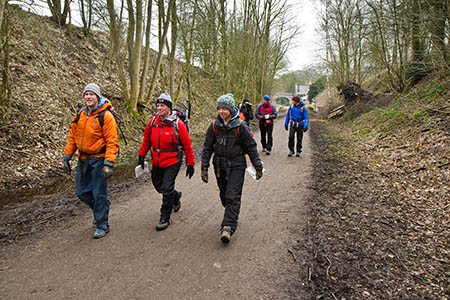
Tutors set out from Thornbridge Hall along the Monsal Trail during the Hill and Mountain Skills induction course
Tutors for the new courses have to hold either a Mountain Leader or Walking Group Leader Award, and have been carefully chosen by the governing body. About 250 men and women have been approved so far, and each has to attend a two-day induction course, of which 15 are being held across the country before the scheme goes live in April.
grough joined a group of 40 in the Peak District countryside as they went through a day of workshops followed by a practical outing into the Derbyshire landscape on a second day to demonstrate how they might deliver the new courses.
Mountain Training executive officer Bryn Williams, who is based at the National Mountain Centre at Plas y Brenin in north Wales, led the induction course.
“When we put the applications out to potential providers, we wanted them to list who they were likely to work with,” he said.
“We were keen to outline a few different user groups we wanted provision to happen with and we identified we wanted a younger audience and we also wanted an adult audience and also the folks who are retiring too, looking at hillwalking as leisure time.
“So we’ve got different catchments. We’ve done our best to have a mix of providers who are going to offer the courses to different groups.
“For me, I’m pushing a lot of focus around recreational hillwalkers, adults who want to be self-sufficient, as a way of equipping them with essential skills. It will hopefully have a positive impact on the skill base hillwalkers have in the mountains.
“After a course, they should be able to plan a route, check the weather forecast, know how to apply that to a route they want to do for their following day, have a basic understanding of map features and map symbols and relate that to what they’re seeing on the ground, be able to prepare appropriately, know what equipment they need to take, and also where to get more information from.
“I think we can acknowledge a two-day course can only give people the starting blocks to being self-sufficient in the mountains. They will then need to apply that to gain their own experiences, and it will still be a fair learning curve before they become a fully competent hillwalker or mountain walker.”
On the practical walk around Monsal Dale, the tutors in turn covered topics such as pacing, timing, movement skills, weather, navigation, clothing and equipment, the environment and hazards and emergency procedures.
During the outing, Bryn Williams made copious notes and tutors gave feedback on each other’s performance. There was even feedback on the feedback.
He explained to grough how the two schemes will work. Anyone wanting to go on the scheme will have to register with Mountain Training. The one-off cost will be £20, or £17 for under-18s. They will then have access to lists of providers on the MT website, from which they can choose one in an area of their choice.
Early indications are that non-residential course fees look to be pitched around the £90 to £100 mark.
He added: “There are a lot of people who have applied to be tutors who want to use this as the first stepping stone for their students on Duke of Edinburgh’s Awards before they then engage them with DofE, as a preparation weekend.
“So they will still get their certificate of attendance without that longer term commitment needed for the DofE.”
He doesn’t think the introduction of the Hill Skills and Mountain Skills courses will affect the number of people undertaking existing leader schemes.
“I think it’s pitched at such an introductory level that it shouldn’t interfere with any of the leadership awards,” Mr Williams said.
“Where I think it might play a part is that folks might progress from this into the Lowland Leader scheme.
“To gain experience to go on to the leadership schemes, I think this is ideal, but I don’t think it will affect the numbers.”
One of the 40 gathering in the Peak District was acclaimed author Mark Reid, whose Inn Way series guide walkers both on the hills and in finding unspoilt country pubs. He also runs the Team Walking business.
He said: “I’ve been taking people out for ages and it just struck me you get all this knowledge when you’re writing the books and I thought it would be good to share that.
“Then I started doing the navigation skills. So I do mostly map-reading courses, and skills courses and I also do guided walks and weekends away, wild camping trips, guided walks up mountains and stuff like that.”
Mr Reid, who holds both the Mountain Leader and Walking Group Leader Awards, said the new skills courses fit in well with what he is already doing.
“I’ve being doing this sort of stuff for a while: one-day, two-day courses. There’s a massive demand for it.
“Given there’s lots of gadgets, phones and GPS, you still need map skills and you still need ‘hill nous’ and you need an understanding because it’s more of an art form, how you interact with the environment and the elements, knowing where you’re going, making an enjoyable route so it becomes a pleasurable experience, not getting lost.
“The beauty of this is that it’s a non-assessed, non-leadership weekend away where you learn key skills and it’s accredited to a well known organisation so it’s got good backing and clout behind it.
“People who book know the quality of what they’re going to get.
“I’ve already identified dates to put them on our schedule. I have been doing some mountain navigation weekends which have been popular for the last two years, so those will become the Mountain Skills.
“We’ll be giving people the key skills on the first day and then on the second day we’ll do a great, inspirational journey. If it’s a hill, going up maybe Great Whernside or Buckden Pike or Simon’s Seat or somewhere like that, to get that inspiration of where you can go and what you can do.
“In the Lakes, maybe get up one of the famous mountains or one of the less well known ones.”
Becki Penrose comes from a different background. She has worked for more than 15 years in outdoor centres and youth organisations and now works at the Hollowford Centre in the Peak District.
She has both Winter and Summer Mountain Leader Awards and various paddling qualifications.
“We work with a wide range of groups but our focus is on developing young people, so we will definitely be using the course in a variety of ways, offering it to any groups that would like to take it up.
“We’ll be working with youth workers or with groups we’re familiar with already.
“I’m sure we’ll offer it to different age groups, but because our ethos is trying to develop young people, I think we’ll be trying to get people into the hills and mountains.”
Unlike Mountain Training’s leadership awards the new skills courses will be open to under-18s, with a minimum age of 14.
Ms Penrose said: “I think the two new courses are good. It’s nice to have something that’s structured but not assessed. It will be accessible to people.
“Hopefully people will hear about them. There are lots of people who want to get out there but don’t have the confidence to do so or maybe just making thing a bit safer and introducing some good practice among folks who are getting out into the hills.”
Bryn Williams also outlined the changes to the Walking Group Leader Award, which is a qualification for leaders operating in non-mountainous uplands in the UK.
“Changes to the Walking Group Leader Award will also happen in the first week of April,” he said.
“It will be called the Hill and Moorland Leader. Small parts of the syllabus are changing. The main difference is that the syllabus area called the overnight experience, which looks at how you might teach elements of campcraft, have been removed from the Hill and Moorland Leader and will have a separate module, an attendance module, which looks at expedition skills.
“It’s a separate two-day course. The feedback from providers was that, because we were dealing with lower experience, it took more time to pass information over, so three days was challenging on Walking Group Leader to get all the relevant information across because more repetition was needed to make sure the skills were there.
“So by removing the overnight experience and taking elements such as the remote supervision out of the Walking Group Leader and putting it in the expedition module, this has allowed a bit more time on those courses to concentrate on the key areas.
“Remote supervision is quite specific to a unique set of user groups and I think we will see some Mountain Leaders who have passed the award going on to the expedition module as a way of extra continuing personal development, so if they are working in that environment where they are teaching campcraft and doing remote supervision then that would be a really good option for them.
“For people who already have Walking Group Leader Award, we’re going to change the name, otherwise it would be very confusing to the public if they are looking for a type of leader.
“We will be putting a statement out to all existing Walking Group Leader Award holders about what has changed and trying to do as much work as we can to promote what the differences are.
“We’ve had this in the past, so the International Mountain Leader used to be the European Mountain Leader. It’s a significantly different course, so we had to draw up a dated statement which is, if you are employing someone who passed prior to this date, this is the syllabus they were trained and assessed to, and following that these are the changes.
“We hope that many of them will see the benefit of taking the expedition module, because they won’t have to register for that; they will just need to attend that as a way of getting extra CPD.”
A further change in this major overhaul of awards is the introduction of the Lowland Leader qualification.
Andy Say, executive secretary of Mountain Training England, explained the reasons for the setting up of the award.
“Lowland Leader is what we see as a possible entry qualification for people with relatively limited experience – they may not have been into the hills and mountains – but are operating in landscape like you can see outside the window here: rural countryside, woodland, forest, probably something like 75 per cent of England’s countryside.
“So we’re looking at people who operate in managed countryside normally operating on a footpath system, if you like, your typical rambler, your everyday walker.
“We’re looking at people who may be operating as group leaders: teachers taking kids out on geology field trips; it could be people working for health initiatives, trying to get people active.
“We’re actually promoting the skills courses and the Lowland Leader as a way of getting champions for outdoor activities in the black and ethnic minorities communities as well.
“It’s people who are working or potentially working in rural countryside: education; community work; health work. And, of course, it’s an avenue for people who are working in a more formal situation like DofE, trainers, people who are developing public services courses.
“We see it very much as a natural precursor to what will be the Hill and Moorland Leader. I’m chuffed to bits that we have a logical, clearly understandable route from lowland, to hill, to mountain.
“They need some prior experience, but we’ve broken the mould slightly, in that we are asking candidates either to take our traditional route and register on the new digital log book, and they can put in 10 good quality walks in the appropriate terrain. So it could be that they’ve done sections of the Dales Way.
“Alternatively, because we’re trying to encourage people from non-traditional client groups, we are saying you can also do a recognised skills course.
“So it could well be that a good route for people would be to do the Hill Skills. Get training in all those basic competences and then come on to the Lowland Leader training.
“It could well be that somebody who has taken part in a gold DofE, for example, should be at an appropriate standard and should indeed have the requisite experience.
“So two routes would be either to demonstrate the relevant experience or take a skills course.”
As with all Mountain Training’s leadership awards, registration costs £39, but unlike the upland leaders’ courses, it won’t be compulsory to join a mountaineering council.
“For someone coming from Essex as a rambler the British Mountaineering Council is going to be a fairly remote entity. If I was absolutely honest I might say the Ramblers might be a better membership organisation,” he said.
“But to encourage that cohort who are coming from a non-traditional background who maybe have no aspiration to be an outdoor pursuits instructor, we think the addition of council membership could be a barrier, so we’re not going to ask those people to join.
“The training course is 16 hours. Most will probably try to structure that into two days with overnight accommodation and some evening theory sessions. So it will be largely two practical days with some teaching input and centre-based work.
“It can be delivered by anyone holding an ML or above. The majority of providers we are finding are existing ML and WGL providers who will have a cohort of highly experienced qualified staff anyway.
“But one of the attractions for people is that some of their centre assistants who aren’t yet Mountain Instructor qualified can direct these.
“So we’re looking for people with ML. One of the reasons we’ve gone for ML and not WGL is that, as part of the Lowland Leader you can add on the expedition skills module and at ML level you will have been assessed on a three-day, two-night backpacking trip in wild country so we know those people should have the relevant competences.
“They have to attend an induction workshop where they can look at the syllabus, discuss it, look at how to programme it.
“There is a consolidation period. We’ve never specified a time. We haven’t for a long time.
“Generally speaking, they should be given fairly detailed feedback at the end of the training course.
“The norm is to give people a rough timescale.
“They then submit to a two-day assessment. They are required to have 20 logged days in appropriate terrain. They undertake a 16-hour, two-day assessment.
“Some centres might actually give them real kids to work with; we don’t specify the methodology. Most people will be demonstrating not just competence but managing a group at the same time as demonstrating that competence.”
Mr Say said there is an optional module to add on. “Once we know they are competent to lead day walks, if they are interested –and people working in, say DofE, or college courses, youth groups might want to develop those skills – they can then come back and do a two-day expedition skills module.
“The idea behind that is to assess their competence to manage camping activities, to teach others to camp in a safe and reliable manner, and to manage expeditions. So there will be an element of remote supervision too.
“It’s effectively a combination of training and assessment.
“The result will be: you have completed the course or you have not completed it. In a way that would be like a deferral but phrased slightly differently. They would be given an action plan to develop skills.
“Employers really need something to say: this person is competent.”
An area of contention is how the Lowland Leader Award will compete with the established Basic Expedition Leader award administered by Sports Leaders UK.
Mr Say said: “The course sits in very comparable terrain to BEL qualifications.
“The major advantage is that Lowland Leader fits in with the broad spectrum of Mountain Training. If you talk commercially, we are a brand that people trust.
“We’ve got all the back-up you see with the candidate management system, so I think we will be inhabiting the same ground and I would see us as a viable alternative to measure the competence of people.
“The big advantage BEL has is that it is structured towards novices. It has a lot of contact hours which may make it attractive to colleges, for example. If they can get funding for those contact hours, it may be an earner for them and a logical decision for them would be to stick with BEL.
“What we’re trying to do is give a lighter touch qualification and maybe one that is more accessible to people like teachers. Their authorities will be crying out for a simple quick training course they can do over a couple of weekends whereas BEL just doesn’t fit that. It’s a bit of a long-term and expensive process.
“I like to think we are an alternative route to competence.
“My target is that in the first year we will register 1,500 people. What we’ve found is that, you launch an award and the next year, you increase by about 25 to 50 per cent.
“You peak after about four years and then there’s a slow tail off as people who have the award are actually out there working.
“I think we could be up to about 2,500 to 3,000. This could be as big as the ML in within two years in terms of uptake. One of the reasons is we’re now dealing with a qualification that covers 75 per cent of England and Wales, whereas the ML only covers about 20 per cent if you include the Moorland Leader you’re probably talking about 30 to 40 per cent.
“So we’re going to be getting people from our non-traditional areas.”
All the changes were due to come into effect on 1 April, but Mountain Training thought that wasn’t too auspicious a date to launch the new schemes and modifications, but expect to see details on the Mountain Training website from 31 March.
